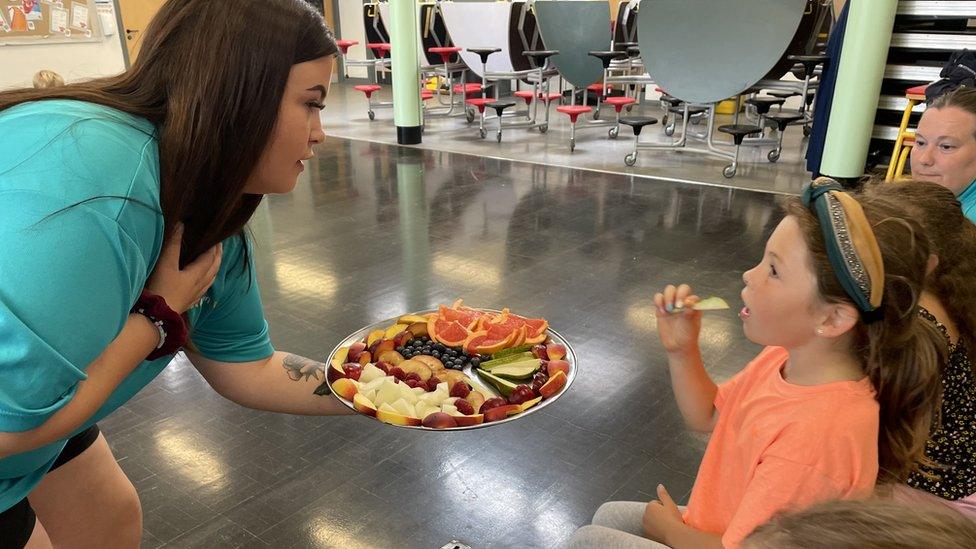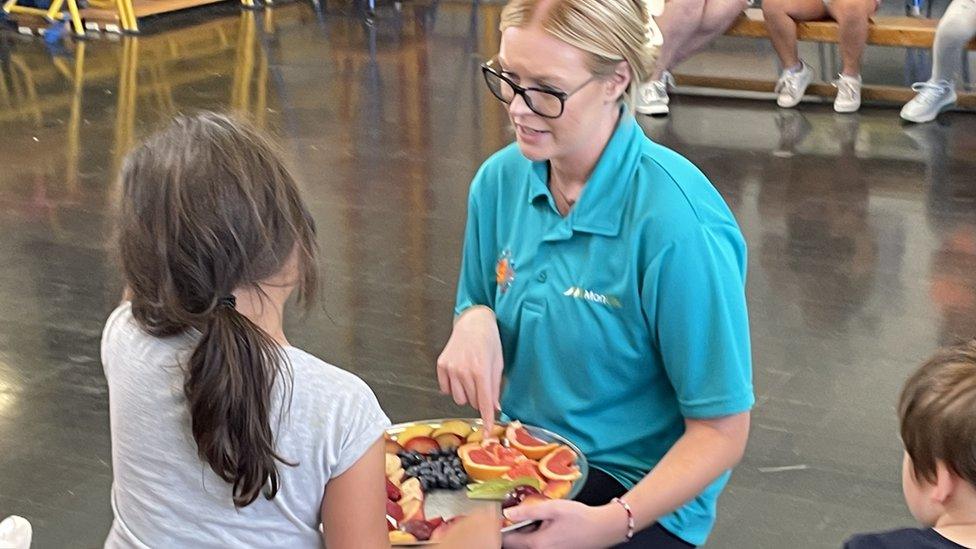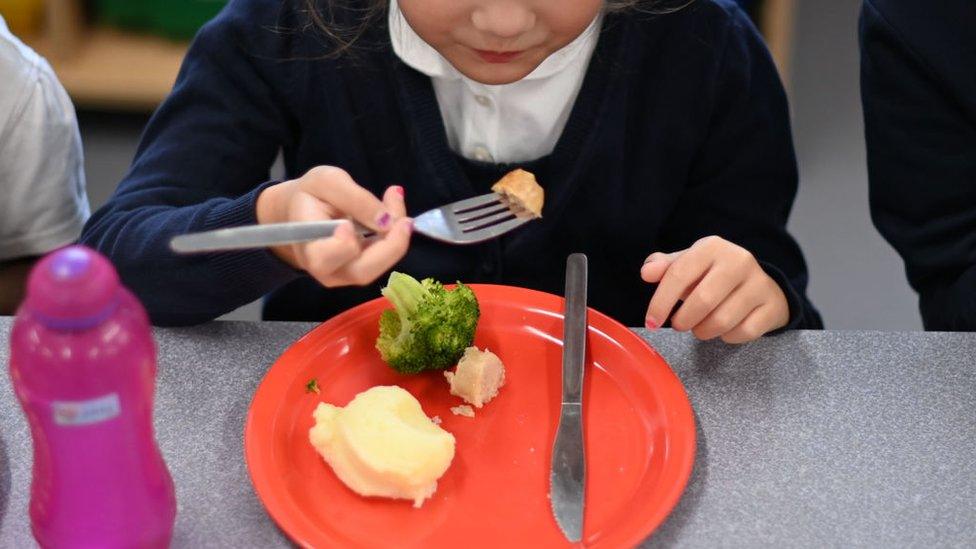Covid: Free school meals pupils' diet hit by school closures
- Published

Research has found children eligible for free school meals have eaten less vegetables and more takeaways in lockdown
Disadvantaged pupils in Wales ate less fruit and vegetables, did less exercise and had more takeaways during lockdown school closures, research has found.
Most pupils stayed home from March to June 2020 and again at the start of 2021 due to the coronavirus pandemic.
Academics from Swansea University said school structure can have a big impact on a child's diet, as children prepare to return to the classroom.
One official who runs health sessions said their need is higher than ever.
Researchers asked eight to 11-year-olds in Welsh primary schools to do an online survey about their health and wellbeing during the first lockdown period, from April to June 2020.
It found there were overall improvements in aspects of children's wellbeing, such as sleep and happiness with family, compared with similar surveys in the previous two years.
However, children receiving free school meals ate fewer fruit and vegetables.

Thornwell Primary School in Chepstow runs sessions to teach children about healthy lifestyles
The research found 45% of children who received free school meals said they had five or more portions of fruit and vegetables the previous day.
This is compared with 69% of children who did not receive free school meals - a bigger gap than in previous years.
More disadvantaged children also reported a reduction in physical activity, when the numbers between the pupils were similar in 2019.
When schools closed in 2020, children who did not receive free school meals reported a big reduction in the number of takeaways eaten, while there was little change for pupils eligible for free school meals.

Nathan Thomas said sessions are intended to teach children about good nutrition
Local authority-run Food and Fun sessions have been held over the summer holidays, combining activities with an emphasis on healthy eating.
Thornwell Primary School in Chepstow is one of dozens of schools running the sessions.
The Wales-wide scheme, also known as the School Holiday Enrichment Programme, has been in place since 2016.
However, Nathan Thomas, who has been in charge of the Food and Fun sessions at Thornwell Primary, said the impact of the pandemic has heightened the need to help children get active.
He said: "They're receiving breakfast and lunch with us daily for the past four weeks
"We're teaching them some really important messages around nutrition but also a good opportunity, especially during Covid, to come back and have some physical activity, and also just having fun over the summer holidays before they go back to school".

Some schools offer activities such as fruit tasting to encourage children about nutrition
Dr Michaela James, a researcher for the Happen Network at Swansea University, said: "Compared to those who were more affluent, there was less of a decrease in takeaway consumption during lockdown.
"We've been noticing that the kind of unhealthy eating behaviours and that lack of access to fresh fruit and vegetables, was really coming out in that story with those who were more deprived."
The Welsh government continued to provide funding for free school meals throughout the pandemic including in holiday periods but Dr James stressed the importance of the school setting.
"The fact that children have more of a routine - there is a set lunch time, set break times - I think that plays a really pivotal role in children's routines and day to day structure.
"I think that has a lot to do with underpinning why even though there was access to free school meals, they may not have been able to access them in the same way that they would have accessed them in school."
The Welsh government's Healthy Weight: Healthy Wales strategy said a quarter of children start school obese or overweight and childhood obesity is worse in more deprived areas.
Are more people eligible for free school meals?
Latest figures showed 23% of pupils age five to 15 were eligible for free school meals in April 2021, up from 20% in January 2020.
The figure rises to 25% when including protection of provision for children eligible during the rollout of universal credit.
At Thornwell Primary School, Monmouthshire council leader Richard John said the Food and Fun scheme has been "so beneficial for so many families."
"I think we now have a responsibility as local authorities and government to help families to take greater responsibility for their own mental and physical wellbeing so a scheme like this that encourages young people to learn more about healthy eating, the benefits of physical activity is going to be so beneficial to them in the long term".

IN MY SKIN: Binge watch our award winning coming-of-age drama
THE CASABLANCA: How a Cardiff nightclub changed our lives

- Published4 April 2021

- Published13 August 2021

- Published27 July 2021
